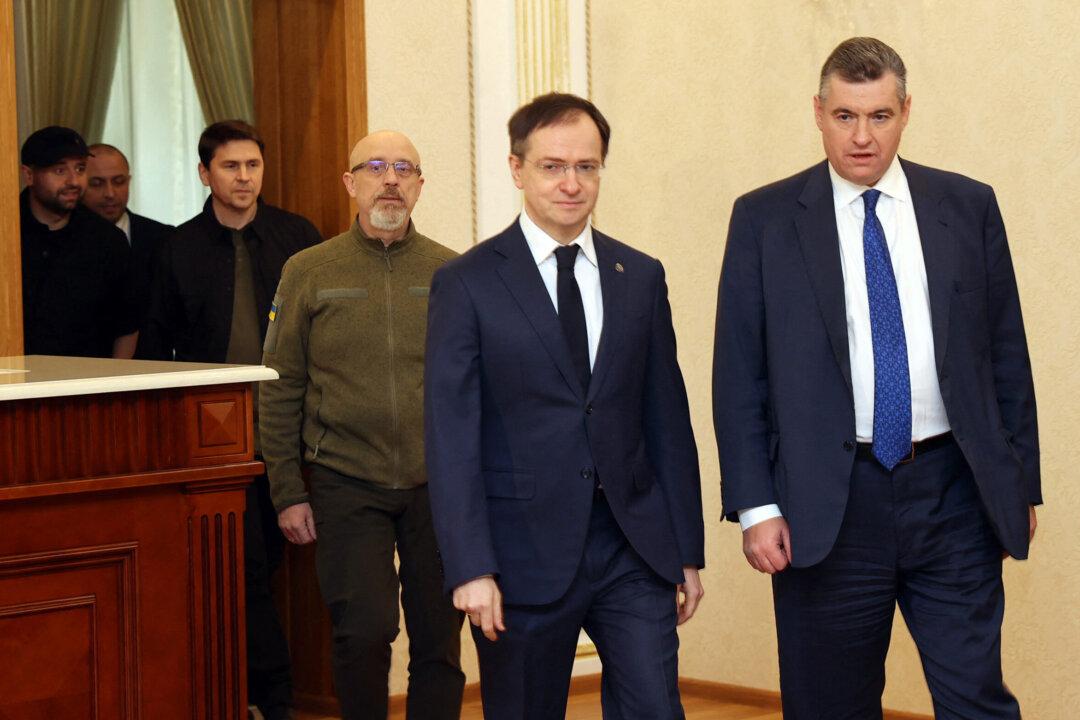Negotiations between Russian and Ukrainian officials in a third country on Feb. 28 yielded no results, officials said after the talks concluded.
Russian President Vladimir Putin and Ukrainian President Volodymyr Zelensky sent top officials as intermediaries as Russian and Ukrainian forces continued battling in Ukraine, including near major cities such as Kyiv. The negotiations were held in Belarus, which has allowed Russian forces to pass through during the war.





